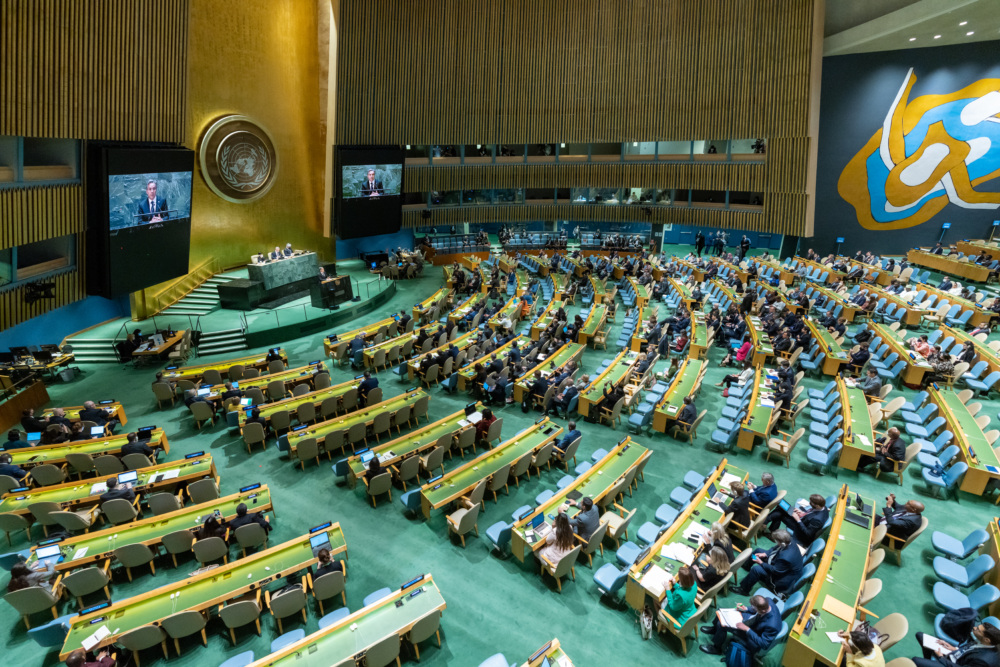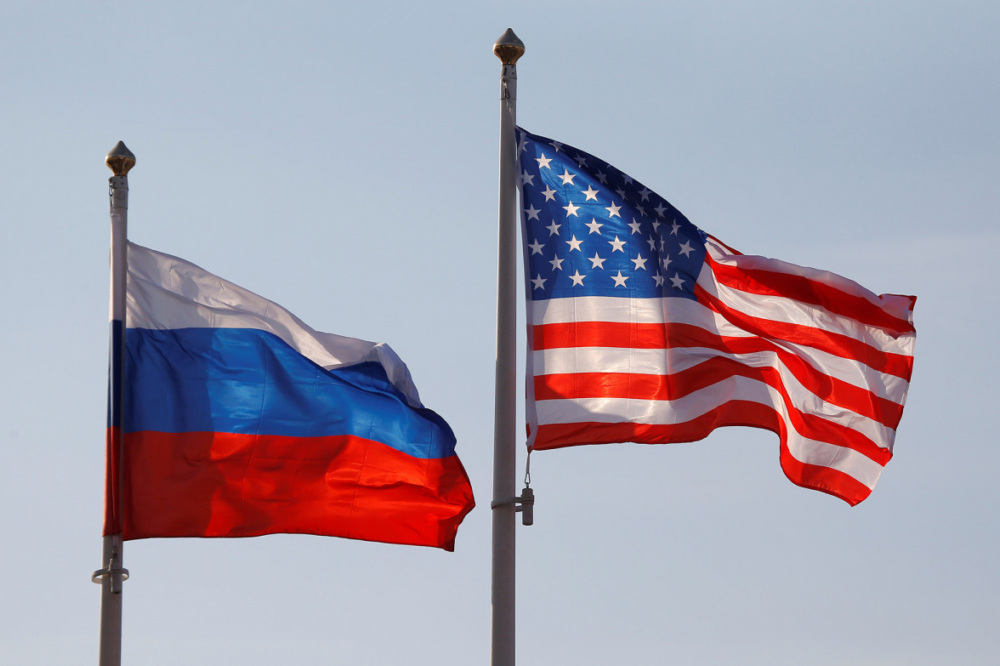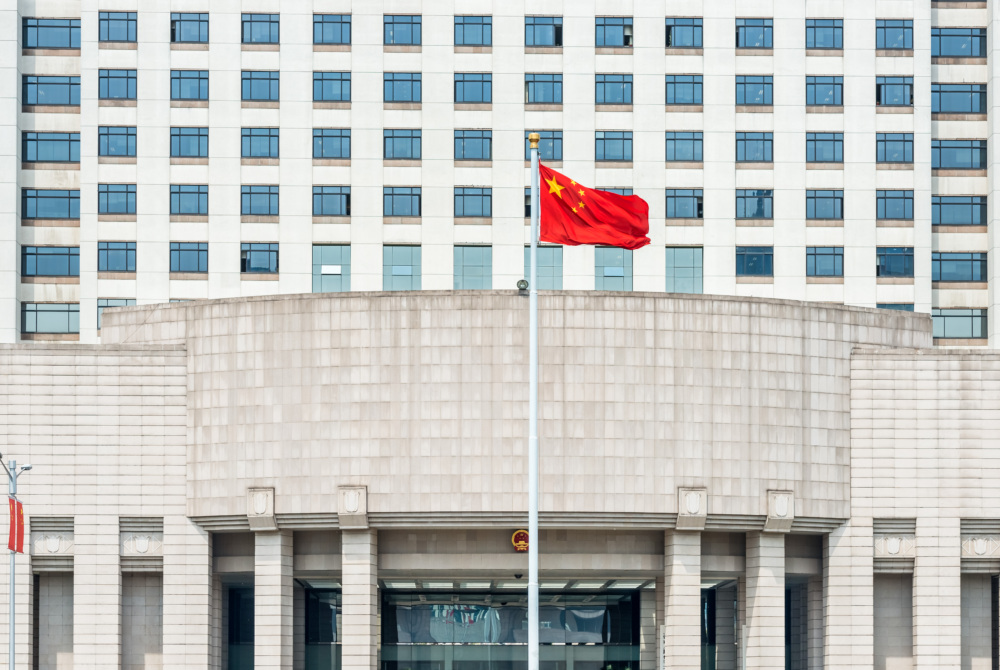This post was written by Payson Ruhl, an intern with NTI’s Global Nuclear Policy Program. Originally from New Jersey, she graduated from Claremont McKenna College in 2019 with a degree in International Relations.
With the February 2021 expiration of the New START treaty looming, arms control experts agree that a clean five-year extension of the treaty between the United States and Russia is optimal for maintaining international security and stability.
Referencing New START’s counting rules and robust verification regime, Lynn Rusten, vice president of the Global Nuclear Policy Program at the Nuclear Threat Initiative, told an Oct. 19 event hosted by the Kennan Institute that it is in the security interests of the United States to maintain “legally-binding limits and verification on Russian strategic nuclear forces,” a consistent element of U.S. policy for the last 50 years.
New START, which entered into force in 2011 and is set to expire on Feb. 5, 2021, places limits on U.S. and Russian strategic nuclear forces and allows for bilateral verification of compliance through data exchanges and on-site inspections. Under the terms of the treaty, the U.S. and Russia can mutually agree to extend it for up to five years, a process that does not require further action by the U.S. Senate.
Although the Kremlin has publicly declared it would agree to an unconditional five-year extension, the United States is insisting it will consider a short-term extension only if Russia agrees to a framework that includes broadening future arms control agreements to include China, a cap on total nuclear warhead stockpiles, and enhancements to the existing New START verification regime. Most recently, Russian President Vladimir Putin proposed a one-year extension of New START without conditions, and on Oct. 20 Russia indicated willingness to accept a political commitment to freeze (without additional U.S. demands) the total number of nuclear warheads on each side. The United States offered to meet immediately “to finalize a verifiable agreement,” suggesting that differences remain.
The Kennan Institute webinar was one of several recent events to highlight the need to take urgent action to extend New START before it expires. Rusten and Feodor Voitolovsky, director of the Institute for World Economy and International Relations at the Russian Academy of Sciences, both made a case for extending New START by five years to preserve existing limits and stability while beginning work on future steps on U.S.-Russian arms control.
Rusten opened the session by arguing that “a nuclear incident seems to the public and our leaders as remote today as a global pandemic probably seemed a year ago to most of us, but just as we need to prepare for and prevent the next pandemic, we can’t afford to be complacent when it comes to preventing nuclear risks.” Noting that relations between the United States and the West are bad and are likely getting worse, Rusten remarked that it is “critical that [the U.S. and Russia] get back on the path of crisis avoidance and strategic stability.” To this end, the United States, NATO, and Russia must “decriminalize diplomacy” and “stop treating it like it’s a reward for good behavior.”
On New START extension, Rusten stated unequivocally that the “United States and Russia absolutely should be extending New START without conditions.” Voitolovsky agreed, adding that extending New START is the “only real step” that would provide the time and foundation “for preparing for changes in the strategic and security environment of the emerging world order.”
Rusten dismissed the idea that Russia benefits from New START more than the United States and reminded the audience that Russia has already confirmed that two of its much-discussed new strategic weapons systems, the Sarmat ICBM and Avangard hypersonic delivery system, will be accountable under New START.
At an event hosted by the Arms Control Association (ACA) on October 9, Sen. Chris Van Hollen, a Democrat from Maryland, also urged a five-year extension of the treaty. He was joined on the panel by Daryl G. Kimball, ACA’s executive director, and Alexandra Bell, senior policy director at the Center for Arms Control and Nonproliferation, both of whom also discussed future challenges to U.S.-Russia arms control. Van Hollen pointed out that at a time when the United States is just beginning its nuclear modernization program while Russia is finishing its modernization drive, maintaining limits on strategic forces “helps cement numerical parity important to the U.S.-Russian strategic balance.” Speaking on New START’s monitoring regime, the Senator argued that the procedures in place “allow [the U.S.] to confidently verify Russian compliance with the treaty limits and, importantly, give valuable insight into the size, location, composition, and operations of Russian strategic forces.” Without New START, Van Hollen warned, the United States would be “flying blind when it comes to Russian strategic nuclear forces.”
Kimball, Bell, and Van Hollen agreed that while there are many challenges to U.S.-Russian strategic stability that must be addressed, such issues should not be shoehorned into New START extension talks—a point Rusten also made at the Kennan Institute event. Bell emphasized that there are “no quick wins” when it comes to negotiating new arms control agreements: “If we are truly committed to new and expanded agreements that would tackle these challenges, we actually have to build the infrastructure to create them.” This, she said, would likely be a “long and tedious process.”
The experts at the ACA event also indicated that the future of New START would depend on the outcome of the U.S. election. Former Vice President Joe Biden has said that, if elected, he will extend the treaty, and Russian President Vladimir Putin has publicly acknowledged Biden’s campaign pledge as “a very serious element of [the U.S. and Russia’s] potential collaboration in the future.” Under a second Trump administration, however, “the New START treaty very likely will disappear,” according to Kimball.
No matter who occupies the White House in 2021, the experts all agreed that the current international security environment demands an unconditional five-year extension of New START. As Bell declared, “this treaty is not a bargaining chip; it’s a life preserver, and we will be in serious danger if we lose it.”




